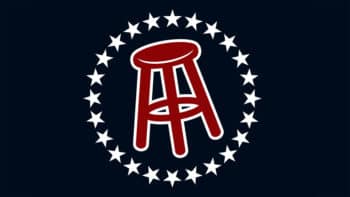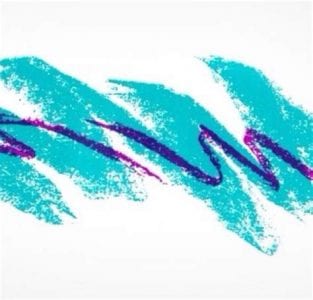Copyright and Plagiarism in the Age of Memes
But think of the memes!

Back in March, comedian Miel Bredouw found herself in a very public battle with the site Barstool Sports. According to her, the site has reposted a video she had created two years prior and did so without attribution or permission.
According to Bredouw, she filed a Digital Millennium Copyright Act (DMCA) takedown notice and got the video removed but Barstool Sports responded by first offering her increasing amounts of money to rescind the notice and with a campaign of harassment.
But after Barstool filed a counter-notice to get the video restored, Bredouw went public with her story and highlighted much of the communication that that had been exchanged.
As the story began to get attention, Barstool Sports deleted over 60,000 of its social media posts, purging over 70% of its Twitter history. The move was likely in a bid to head off future DMCA notices, which could have resulted in the account being suspended.
The site also tweeted saying that it was the “old Barstool” and that they were committed to change.
However, it doesn’t seem that Barstool Sports fully learned from the incident. Today news is coming out that Barstool Sports has been accused yet again of content theft. This time it was a gif of a blue monster that’s owned by artist Ben Rubin that was used in Barstool Sports’ Snapchat story.
Though Rubin did not face the same harassment that Bredouw did, Rubin was forced to file a DMCA notice to get the clip removed. Barstool admitted to taking the image out of Giphy, where it can still be found.
However, Barstool Sports is far from alone in facing these issues. In fact, they aren’t even the biggest name in meme content theft. That honor belongs to a company whose name has practically become synonymous with plagiarism.
The Case of Jerry Media and FuckJerry

Jerry Media, the advertising company behind the popular FuckJerry Instagram account has drawn a great deal of controversy in recent months for its role in promoting the disastrous Fyre Festival and for content theft.
Things came to something of a head for Jerry Media in February as the company, now in the spotlight due to its Fyre Festival documentary, was facing public outcry for its misuse of content.
At the forefront of that outcry was Vic Berger, who claimed to have been ripped off by Jerry Media in 2016. Berger produced a video entitled “FuckJerry: Easier to Steal.” However, in a moment of irony, Jerry Media filed a DMCA notice with YouTube to get the video removed due to its use of clips that Jerry Media owns.’
Still, the backlash did manage to sting Jerry Media. FuckJerry lost over 200,000 Instagram followers (still a small fraction of its 14 million followers), the company did a social media purge of thousands of items and the company released a statement saying that, “Effective immediately, we will no longer post content when we cannot identify the creator, and will require the original creator’s advanced consent before publishing their content to our followers.”
But, in spite of the promise of change, Jerry Media may still face consequnces. In March content creator Olorunfemi Coker filed a lawsuit against them claiming that FuckJerry used meme of his without permission or attribution as a tool to promote tequila.
But, even though the issues with Jerry Media came to a head over the past few months, they’ve been well-known for years. In fact, in 2017 Jerry Media had a very public war of words with, of all people, Barstool Sports, the latter accusing FuckJerry of stealing their content.
In short, even if Jerry Media really does change its ways, it has years of history as a bad actor to account for and it will likely always be treated with suspicion by content creators.
Why Now?
All of this begs an interesting question: If Jerry Media and Barstool Sports have been lifting memes and gifs for years, why is it suddenly a big issue now?
Some of it, most likely, is as simple as awareness breeding more awareness. Jerry Media brought much of the scrutiny on itself with its Fyre documentary and that attention gave people the chance to raise old grievances to a new audience and raise the broader issue in the public’s mind.
However, it’s likely more than that.
One reason is that memes have become big business. Back in 2016 FuckJerry was estimated to get around $30,000 per sponsored post. It’s a hefty haul for simply reuploading other people’s creations.
Re-sharing memes, with or without attribution, has traditionally been seen as a strictly non-commercial act. Sure, people might be uploading content without permission, but no dollars were thought to be changing hands. As a result, people largely tolerated it.
An exception to that came in 2015 involving Josh Ostrovsky, better known as the Fat Jew, was caught stealing jokes for his Instagram. Ostrovsky, at the time, was lined up for a show on Comedy Central but those plans were cancelled after the scandal.
But that’s been one of the big changes. In 2015 Ostrovsky was seen as an oddity for being able to parlay his meme-finding skills into a lucrative career, today it’s well-understood that many meme accounts are getting extremely wealthy. This has led to a pushback from the artists who create the original works while toiling in relative obscurity.
In short, the awareness isn’t just of the worst actors. It’s of the industry at large. Creators are aware of how they’re being exploited and are fighting back against it. To that end, the best weapon they have is the DMCA takedown, not only because it’s free, fast and easy to file, but the law obligates hosts to terminate the accounts of users that accumulate too many.
That, ultimately, is why companies like Barstool Sports and Jerry Media fear content creators. Lawsuits can be annoying, but Barstool Sports has been sued 11 times in the past three years according to The Daily Beast, but when you’re getting tens of thousands per post you can afford lawyers.
Such companies can fight lawsuits, they can’t survive losing their platform. That’s the threat the DMCA provides.
Bottom Line
In the end, the climate for social media “aggregators” has changed and that’s evidenced in the new policies at both Barstool Sports and Jerry Media. However, that climate changed not because of anything with the law, but the public.
Creators are simply more aware that their work is being ripped off as a means to get other people rich. They are responding by fighting back both publicly and privately. This has the meme factories nervous, not just for the public backlash but for the risk of losing their platforms.
In the end, it’s unlikely that these companies would simply do the right thing if people asked. Their hostility toward angry creators is well-documented. Instead, they’re promising to change their ways because of fears of losing their reputation and their platform.
They might not fear a lawsuit, but they know they can’t survive without a voice.
Want to Reuse or Republish this Content?
If you want to feature this article in your site, classroom or elsewhere, just let us know! We usually grant permission within 24 hours.
